Images of hope, made from pictures of war
- Published
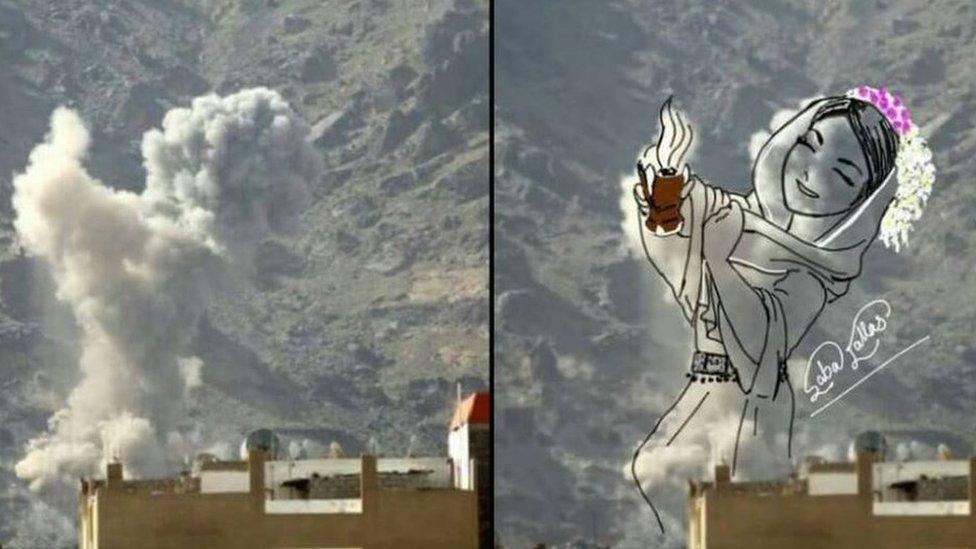
When the Saudi-led coalition started its military operations in Yemen last March, Saba Jallas was struck by how sudden it all seemed.
"I've always been an optimist and a happy person but when the war started, it shook me," she says.
Jallas, like many other Yemenis, spent the early months of the conflict trying to find ways to cope with its impact on her country and family. "I had to save myself from these negative feelings and overwhelming thoughts. I searched everywhere on the internet to find a way to get rid of these feelings."
She eventually found inspiration from a group of Palestinian artists who turned pictures of bombings in Gaza into messages of resistance, external. She decided to use her smartphone to draw her own messages on pictures of explosions and destroyed buildings in Yemen - turning scenes of devastation into ones of beauty, and even hope.
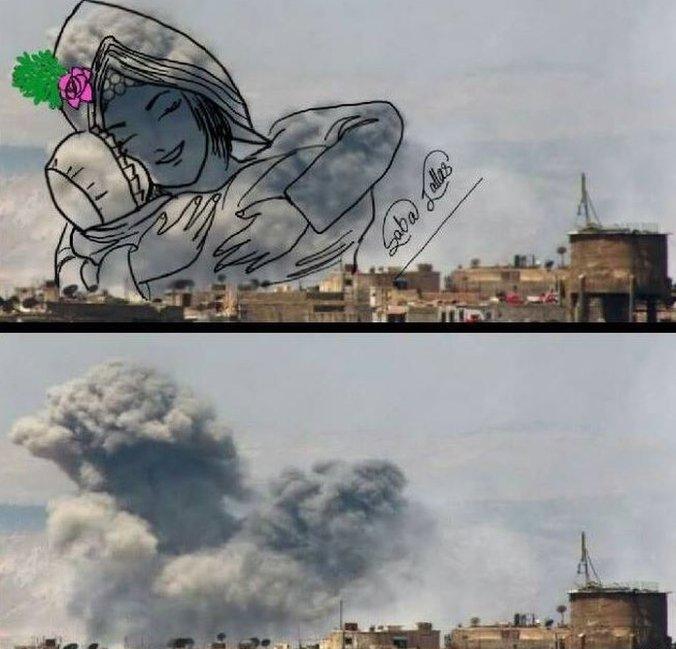
The war in Yemen started after northern Houthi rebels took control over the capital Sanaa and started to move south. Since, the Saudi-led coalition launched military strikes on the request of the Yemeni government, and according to estimates nearly 6,000 people have been killed, almost half of them civilians.
Jallas, who does not want to reveal her location, posted her pictures to Facebook page, external in hope of spreading a positive message in the midst of all the tragic news. "I chose to try to heal through drawing," she says. "Maybe drawing won't change much but I'm over the moon when people message me to tell me that my drawings give them hope."
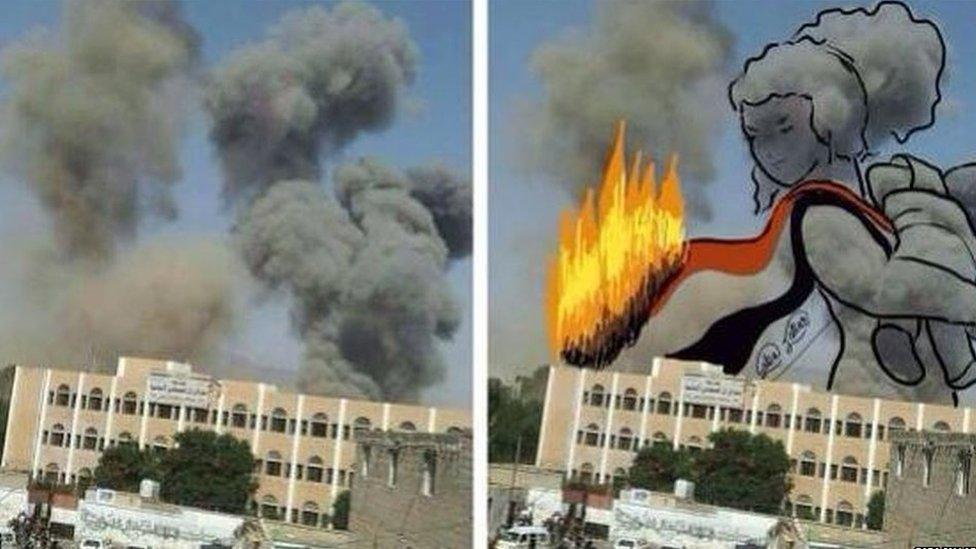
Most of Jallas' drawings are of girls and women embracing children or looking happy. "Maybe because I see women as a symbol of compassion" she explains.

Follow BBC Trending on Facebook
Join the conversation on this and other stories here, external.

Other drawings show people in traditional Yemeni clothes in peaceful settings, and some imagine repairs to destroyed school buildings.
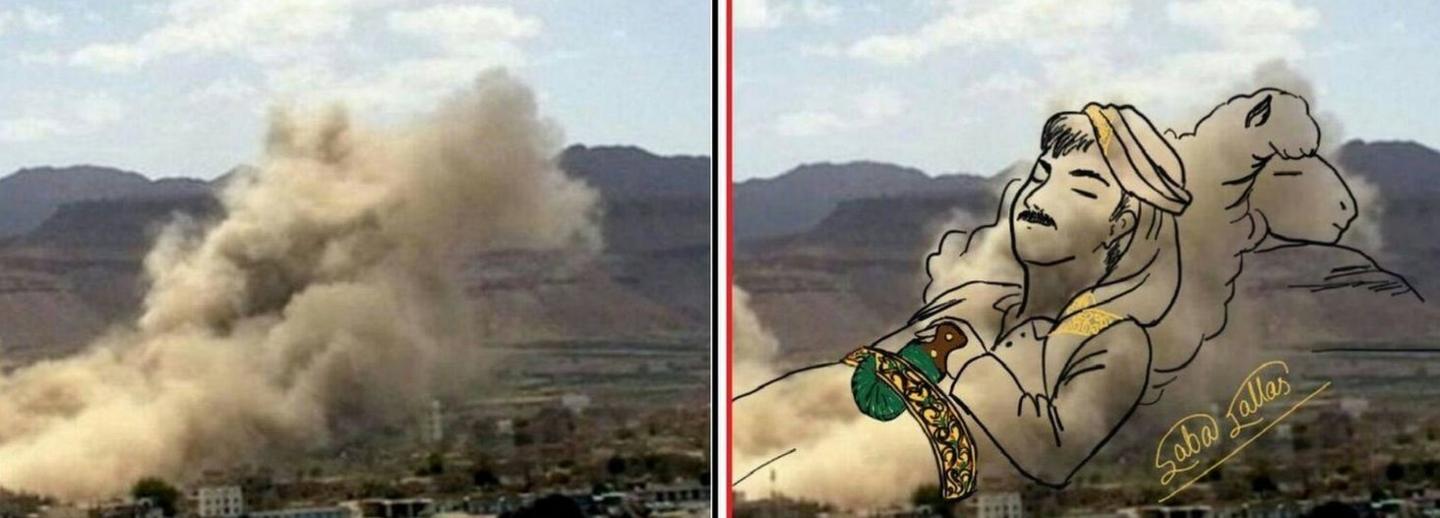
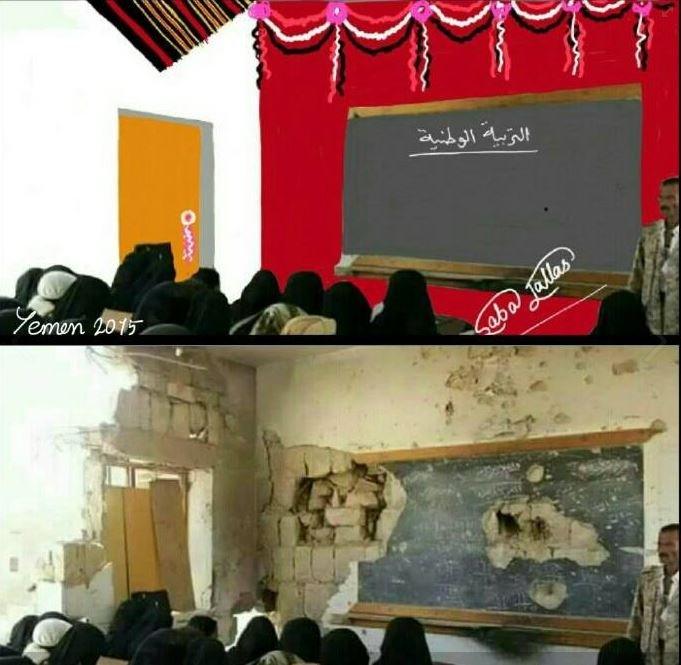
In 2010 Jallas suffered a personal tragedy. Her only brother was killed while serving as an army officer. The circumstances around his death are unclear, but Jallas says it was a result of the divisiveness that has plagued Yemeni society and which has in part led to the current conflict.
"There's a lesson for us to learn from all that is happening in Yemen. We need to learn to accept our differences" she says. "When we lifted our weapons and threw out beauty and art, this was the result."
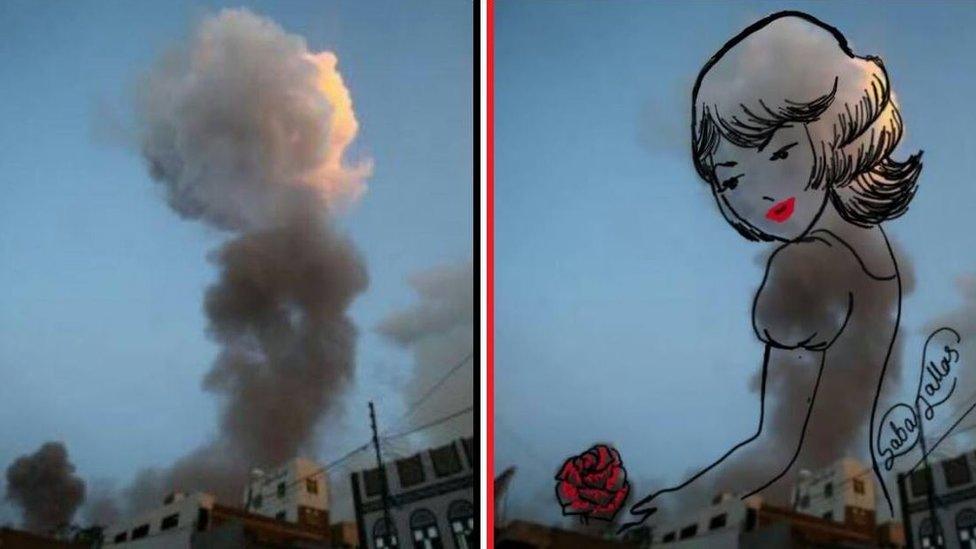
Blog by Mai Noman
You can follow BBC Trending on Twitter @BBCtrending, external, and find us on Facebook, external. All our stories are at bbc.com/trending.